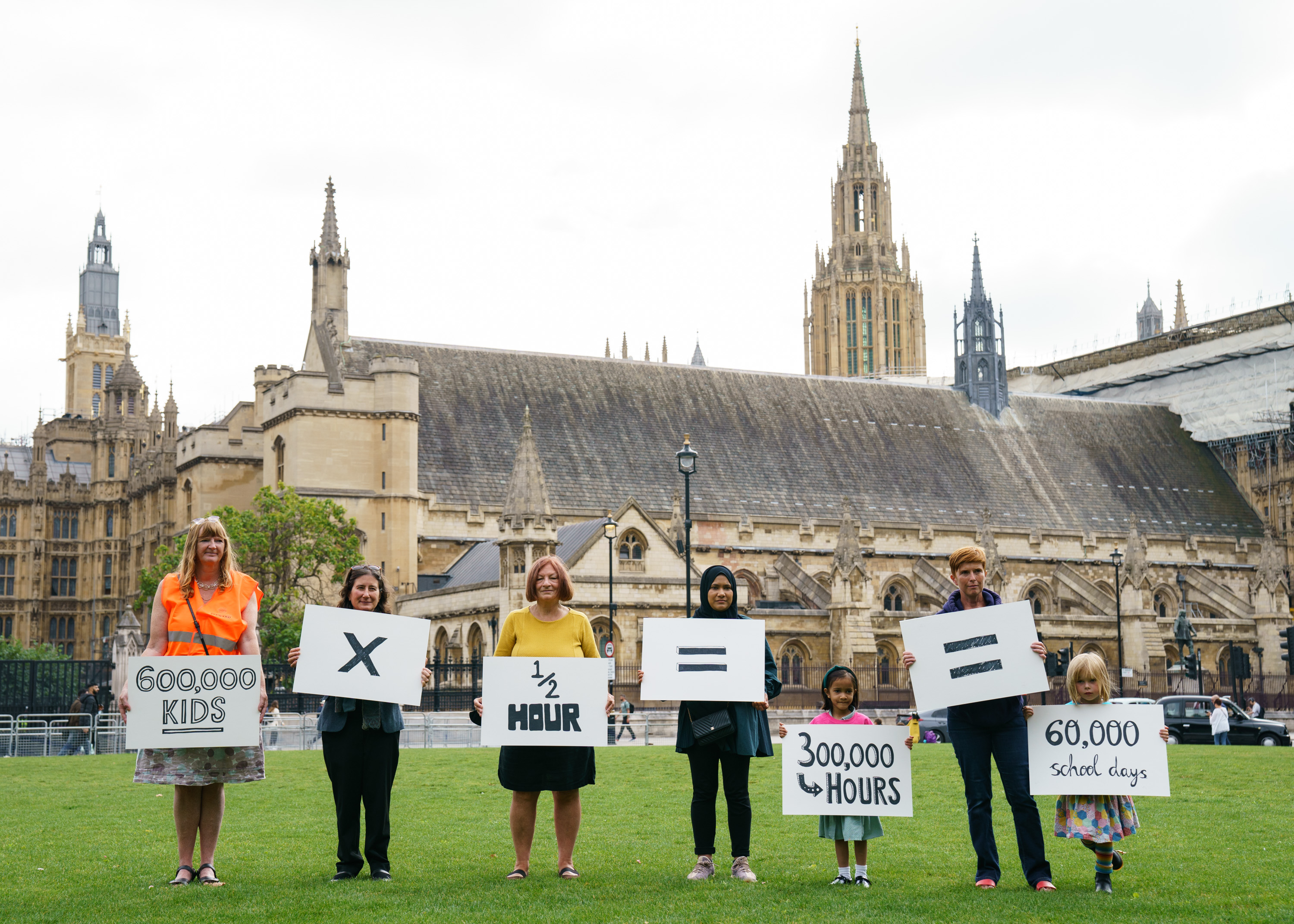
Around 600,000 children starting Reception this month will have to take the new Reception Baseline Assessment (RBA) in English and Maths, which is now a legal requirement.
More Than A Score, the campaign group organising the petition, have calculated that at least 300,000 teaching hours (or 60,000 school days) will be lost to the administration of the assessment, which they claim has been designed purely as a data collection exercise for the Government.
Education experts have pointed out flaws in the RBA, including the difficulty extracting reliable information from very young children and the disruption to the classroom at a key time for children who are just starting school. They also point out that Reception teachers carry out their own detailed assessments of children based on observation during the first weeks of school.
Another major concern for just under two-thirds (63 per cent) of primary school heads surveyed by More Than A Score in April was that the Covid effect on pre-school experiences would render any data produced from the tests useless as a baseline measure.
According to the same research, 80 per cent of headteachers believe the RBA is not a good use of teaching time.
Kulvarn Atwal, headteacher of Highlands and Uphall Primary Schools in Ilford, said, ‘The first few weeks of Reception are absolutely critical and as teachers, we have always taken the time to undertake baseline assessments of where children are at to support them in their learning journeys. But now teachers will be taken out of the classroom to waste precious time collecting unreliable and unnecessary data for external purposes. We are doing everything we can to minimise disruption to our children's learning but it is the last thing pupils and teachers need.’

Many parents remain unconvinced about the value of the tests, with just 6 per cent believing it’s important to formally test children in English and maths when they start school.
Justine Stephens who handed in the petition with her daughter said, ‘Rowen is so excited about starting school - it’s a huge step and a big adventure. I trust her teacher to spend lots of time getting to know her, settling her in and assessing all that she can do. The last thing they both need is for this precious time to be wasted collecting pointless data for a Government league table in seven years’ time.’

Campaigners, pictured outside Parliament on Thursday, have calculated how much time it will take teachers in England to carry out the tests
The new Baseline test is one of three new primary assessments in the 2021/22 school year, alongside an Autumn Phonics Check for year 2 pupils and a year 4 Times Tables Check.
The number of Government tests has now doubled to six for the 2021-22 academic year, with statutory assessments in five out of seven primary school years.
In the 2021/22 academic year, they are:
- Reception Baseline Assessment (RBA)
- Autumn Phonics Check for Year 2
- Summer Phonics Check for Year 1
- Year 4 Times Tables Check
- Key Stage 1 SATs in Year 2 (until 2023)
- Key Stage 2 SATs in Year 6
Nancy Stewart, vice-president of Early Education and spokesperson for the campaign group, said, ‘In this school year, children and teachers need time to love learning following many months of disruption. Mental health and wellbeing must be the priority, not high-pressure tests. Our youngest pupils are carrying the burden of a system obsessed with data collection.’
The Department for Education says that the assessments are not tests, that there is no 'pass' mark and children do not receive a score.
They say that the checks, which will replace the SATs taken at the end of Year 2, will be key in giving a better understanding of where a child is starting from when they arrive at school.
A DfE spokesperson said, 'It is vital that children do not miss out on building important vocabulary and reading skills in their early education, despite the challenges the pandemic has presented.
'The reception baseline assessment is not a test and there is not a pass mark. It is important to see the progress children make in primary school, and the measures enable the department to understand how well schools are supporting their progress.'
- For more on the new Reception Baseline see our analysis in the October issue of Nursery World, out on Tuesday (28 September).









